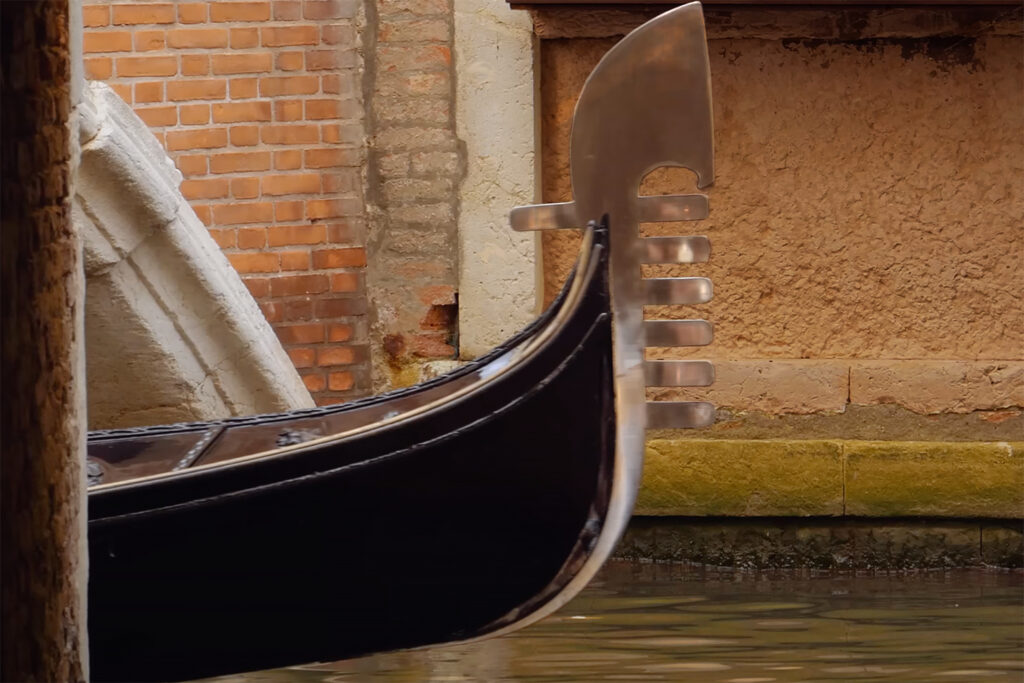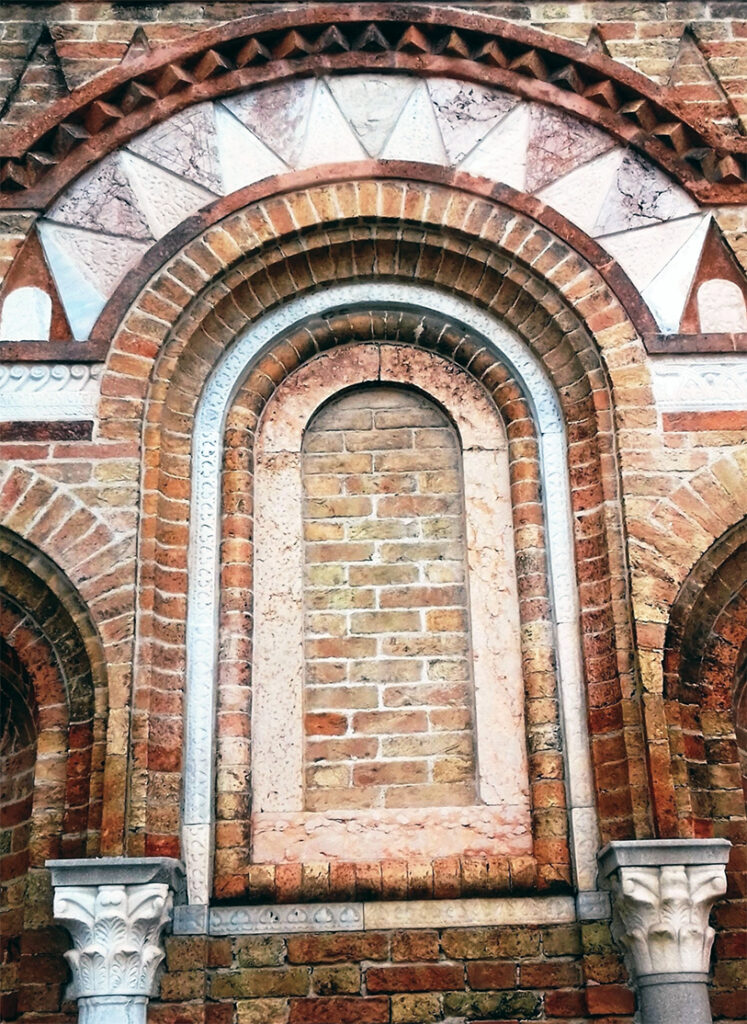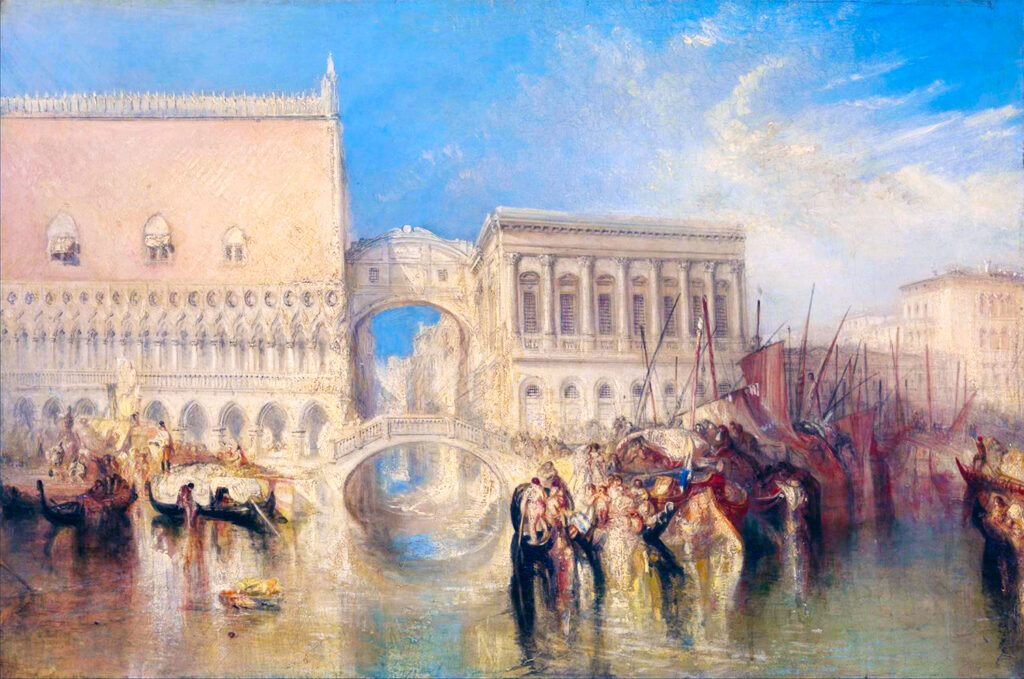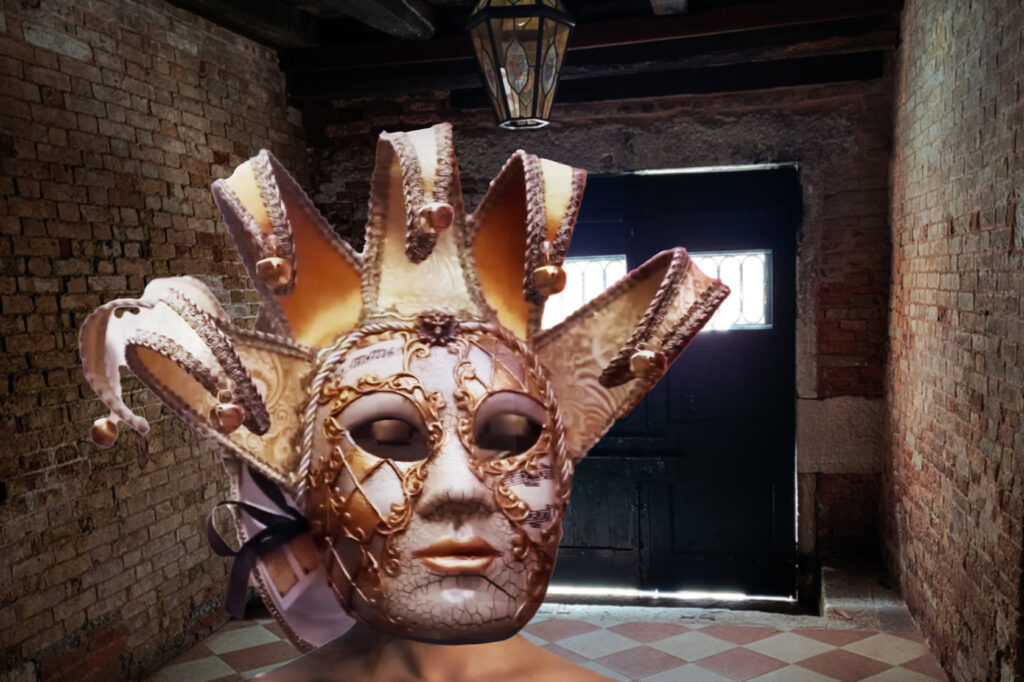
Venice, this is a song for you,
sung in St Mark’s: hat and sticky sandals,
sun on shoulder, shopping bags,
vaporetto tickets and a camera.
Pigeons and tourists alike join chorus,
we latest fruit on the trailing vine of time,
gathered in the here-place that is all places:
to hail you, La Serenissima.

Fish swim a thousand miles
to nibble at your venerable poles.
The peel of your bells pours
into the ears of sleeping whales.
The stars come trundling
on their jagged pointy wheels.
The moon tugs at your moorings,
but it’s you who pull the moon.
Alps impose their majesty
on your simple virgin soul—
all like-minded pilgrims travelling
to look through the bars,
catch the flick of an eye,
marvel at the impression
famously left in your pillow.
A paw print. Spoor of the lion.
Oh! that lion! The chimaera that lurks
in the labyrinth of Venetian alleys.
Gleam among the shadows,
soft, animal breath that wakes
a city in its waxy newborn skin,
the discarnate jaws lying in wait
to rip apart the sacrificial tourist.



When your sailors went to gather riches,
money from Byzantium, from Arabia,
almost unintentionally, they quarried
music from the sea. They brought home
siren songs to fashion into bridges,
palazzi, ornate arches, domes, porticoes.
They sieved and poured into shapes
the music of conch shells
and centuries-old encrusted corals.
Sublimations of pearl they carved
into buildings, and your soul
from Istrian stone. From the east,
fantastical creatures, from the west,
sunsets made of flesh, so ships
dipped literal oars in liquid gold.
But none of this was you, Venice,
not even Neptune’s fabled white spume
dangling from the lagoon’s sweet lips.
You were a mudlark, never a goddess—
an urchin from the seabed, the stowaway
who slipped ashore unseen.



Alone in the silence of the marshes,
what need had you of anyone?
You did away with all
the usual human prosthetics—
wheels, cars, carriages, roads.
No need for horses, nor even for grass.
A city swan-like in pure thought,
free association, floating, gliding,
a city that travels by bridge.
Your bridges are your synapses,
linking each longing to the next.
But oh what bridges,
supple, effortless, purest metaphor,
like walking on water, flat-stretched wings,
as if you, albatross of cities, declared:
‘My world shall defy gravity, my bridges
shall carry the way waves carry a boat,
spanning nowhere to nowhere
in pure pleasure of motion.’
And under every bridge
you spin a bright cocoon,
homeless worm of silky light.
You spin tunnels to infinity
from which, like imagoes, the slinky gondolas
emerge to caress the creases in your palm.


And oh, Venice,
in mask and laddered stockings,
you stand teasingly in a doorway,
neither guest nor host,
a passing stranger who whispers:
‘No one is watching. Here
you can forget to be good.’
And who could resist, at edge of night,
this dark-eyed thigh-deep girl?
But Venice, what startles isn’t you.
What startles is never you.
What startles is the doorway—
the doorway slapped by water,
the tentacles of reflection,
amniotic, slippery, wet,
way in and way out,
the door wherein the doctors
dressed as birds of death
once poked their prying beaks.
Adrian Bell


